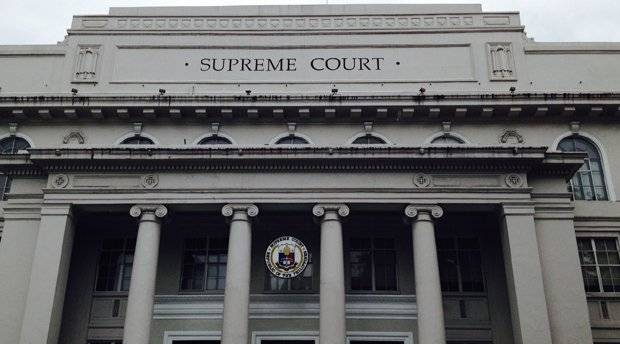SC ‘second placer’ ruling to test recent poll disputes

A Supreme Court ruling abandoning the “second placer rule” in election cases has become a test for recent poll disputes.
Commission on Elections (Comelec) Chair George Garcia acknowledged that view on Monday, saying the poll body will file a motion for reconsideration on the high court’s April 22 ruling that was disclosed last week.
Deciding on a 2022 election case (Datu Pax Ali Mangudadatu v. Commission on Elections), the Supreme Court said a second placer in a local race could not replace the disqualified winner. The court said it was “abandoning” the second placer rule it had previously upheld in 2012 “for lack of legal basis” and in accordance with the Local Government Code (Republic Act No. 7160).
Abante case
That ruling, however, does not apply to the House of Representatives, University of the Philippines law professor Dante Gatmaytan told the Inquirer over the weekend.
But another legal expert said the Supreme Court ruling could apply as well to such disputes in the congressional race.
The Comelec last week declared Bienvenido Abante as the duly elected representative of Manila’s sixth congressional district after the poll body’s Second Division annulled the candidacy of his winning rival, Luis Chua Uy, amid questions regarding his citizenship.
The Second Division had also canceled the registration of Duterte Youth for not having undergone the required procedures for its accreditation in 2018. The controversial party list group won three seats in the 20th Congress.
Both cases are pending and the implications of the new Supreme Court ruling remain to be seen.
Permanent vacancy
Ateneo Law School professor Eugene Kaw said the Mangudadatu doctrine could apply as well to poll cases in the congressional race.
Mangudadatu had challenged the Comelec decision canceling his candidacy for Sultan Kudarat governor due to false material representation regarding his change of residence. The poll body then ruled that the duly elected vice governor “shall serve the remaining duration” of Mangudadatu’s term.
In an emailed response to the Inquirer, Kaw said “if the COC (certificate of candidacy) of the congressional candidate is canceled by reason of false material representation under Sec. 78 of the OEC (Omnibus Election Code), the candidate with the second highest number of votes (i.e. second placer) cannot be declared as the winner as he or she is not the will of the people.”
Since there are no succession rules for congressional seats, he said, a permanent vacancy will be created which will allow for the conduct of a special election instead to serve the unexpired term pursuant to Section 9, Article VI of the 1987 Constitution.
Party list rankings
But in the case of Duterte Youth, Kaw, who teaches political and election law, said the abandonment of the second placer rule does not apply since party list seats are allocated based on rankings under the Party List System Act (RA 7491).
“Thus, given Duterte Youth’s three-seat allocation, the possible beneficiaries there would be No. 55, Gabriela; No. 56, Abono; and No. 57, Ang Probinsyano for one seat each, respectively,” Kaw said, adding that the scenario would be similar to what happened to Akbayan in the 2022 elections after the cancellation of An Waray’s registration.
For now, Garcia said the Comelec would consider how the high court’s decision should affect its rulings regarding the just-concluded midterm elections.
“We believe that there are many things that need to be clarified, and we need to better understand the implications of the abandonment of the second placer doctrine,” Garcia told reporters.

















